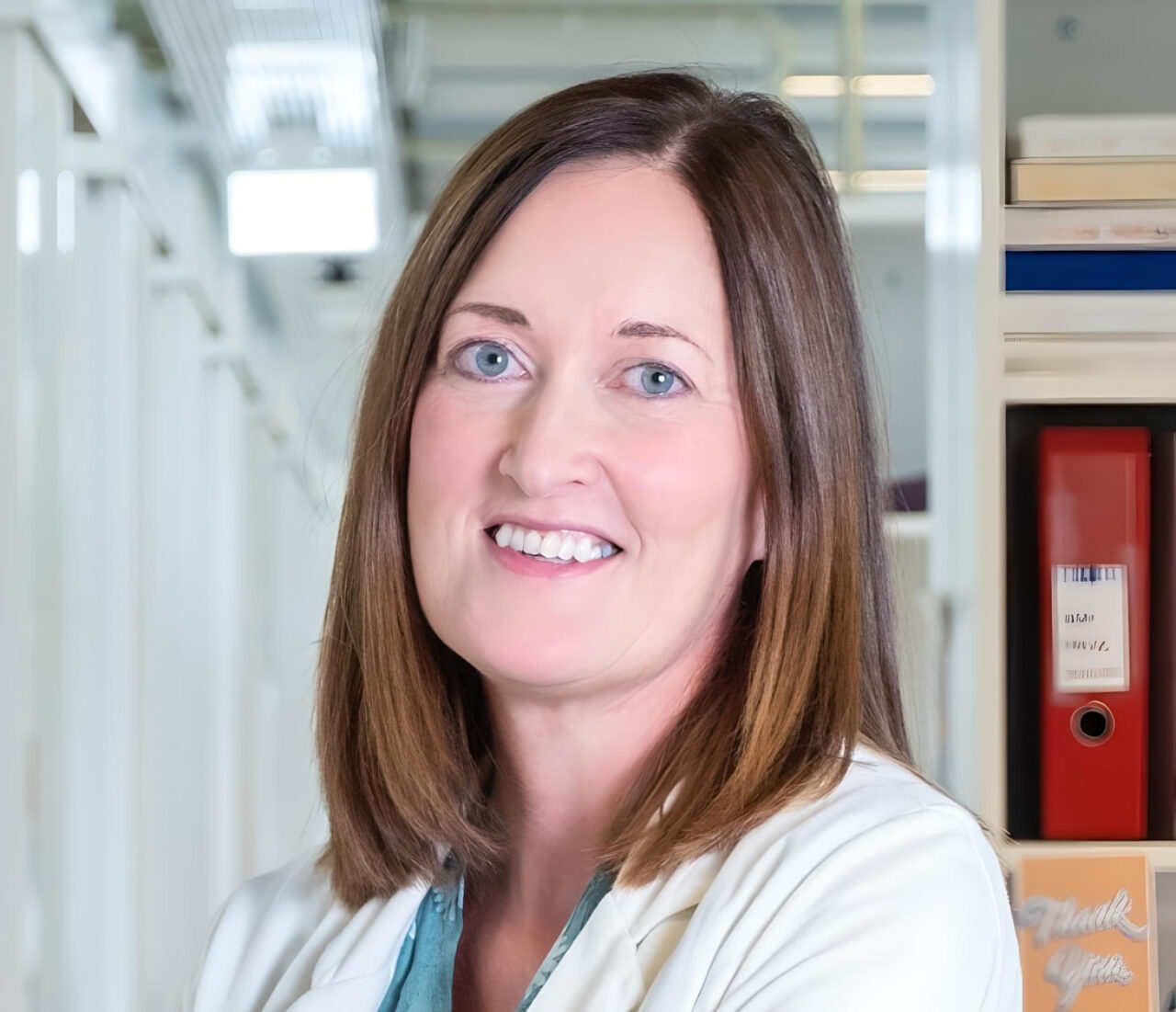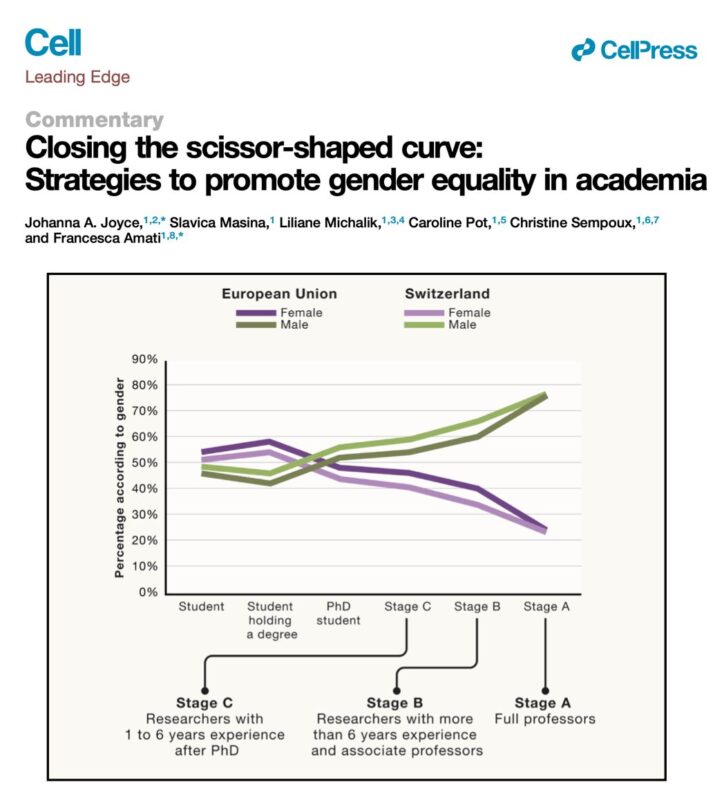
Johanna Joyce: The metaphor of an open scissors strikingly depicts the progressive decline in the representation of women at successive stages of the scientific and academic career trajectory
Johanna Joyce, Professor at University of Lausanne, made the following post on LinkedIn:
“Women are under-represented at senior levels in academia globally, and across all science disciplines, as shown by these ‘scissor-shaped curves.’
So how can we achieve gender equality?
We discuss various strategies in this Cell Commentary.
The metaphor of an open scissors strikingly depicts the progressive decline in the representation of women at successive stages of the scientific and academic career trajectory. Women embark on these paths with equal enthusiasm and potential as men.
Yet, they often face systemic, cultural, and societal barriers that contribute to their underrepresentation – including in senior roles. These scissors curves can be found the world over, regardless of the scientific discipline or country in which the data have been collected.
So, what drives the scissors effect, why does it persist, and what are the strategies we can implement to stem the flow of talented women out of academia? These are some of the questions we address in this article, endeavoring to apply a data-driven approach to understand and offer solutions.
We highlight a selection of key, impactful initiatives that are making advances toward achieving gender equality at our university – the University of Lausanne, Switzerland. It’s also important to emphasize that we do not imply these are the sole solutions to close the scissors curve.
– Parental leave support to hire a technician
– On-campus childcare
– Grants for transition to independence
– Transparent faculty hiring procedure
– Training to avoid implicit bias
– Leadership courses, networking
– “Help platform” to counteract harassment
– and much more.
The negative impact of inequality is not confined to individuals; it extends to the scientific community as a whole. We argue that achieving gender equality in academia is an urgent imperative that cannot be ignored, nor can it be expected to happen naturally over time.
We also want to emphasize the continued importance of engaging men as allies in the mission to combat gender bias. Diverse and inclusive teams are considerably more competitive in numerous respects, including scientific output and impact – so this benefits us all!
I would like to thank my amazing co-authors for their tireless dedication to EDI in every respect, not only gender equality – Francesca Amati, Slavica Masina, Liliane Michalik, Caroline Pot, and Christine Sempoux. It was such a pleasure to write this with you, and also to work with Isabel Goldman, an extraordinary editor at Cell. Thank you all for this incredible experience!
Finally, we thank our brilliant daughters and sons, students and all young scientists. You serve as a constant source of inspiration, motivating us to strive for a brighter and more equitable future for your generations.

Source: Johanna Joyce/LinkedIn
-
Challenging the Status Quo in Colorectal Cancer 2024
December 6-8, 2024
-
ESMO 2024 Congress
September 13-17, 2024
-
ASCO Annual Meeting
May 30 - June 4, 2024
-
Yvonne Award 2024
May 31, 2024
-
OncoThon 2024, Online
Feb. 15, 2024
-
Global Summit on War & Cancer 2023, Online
Dec. 14-16, 2023
